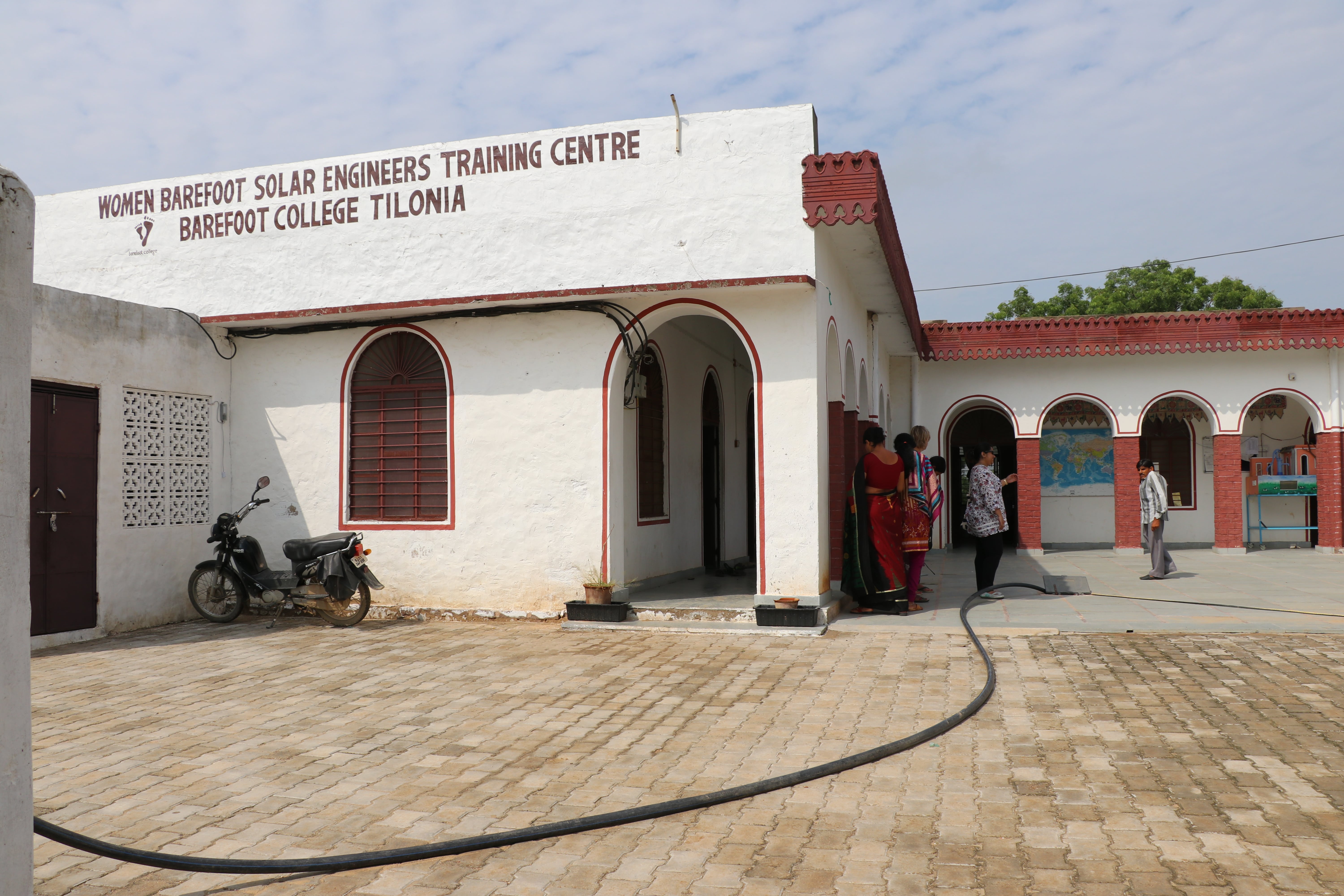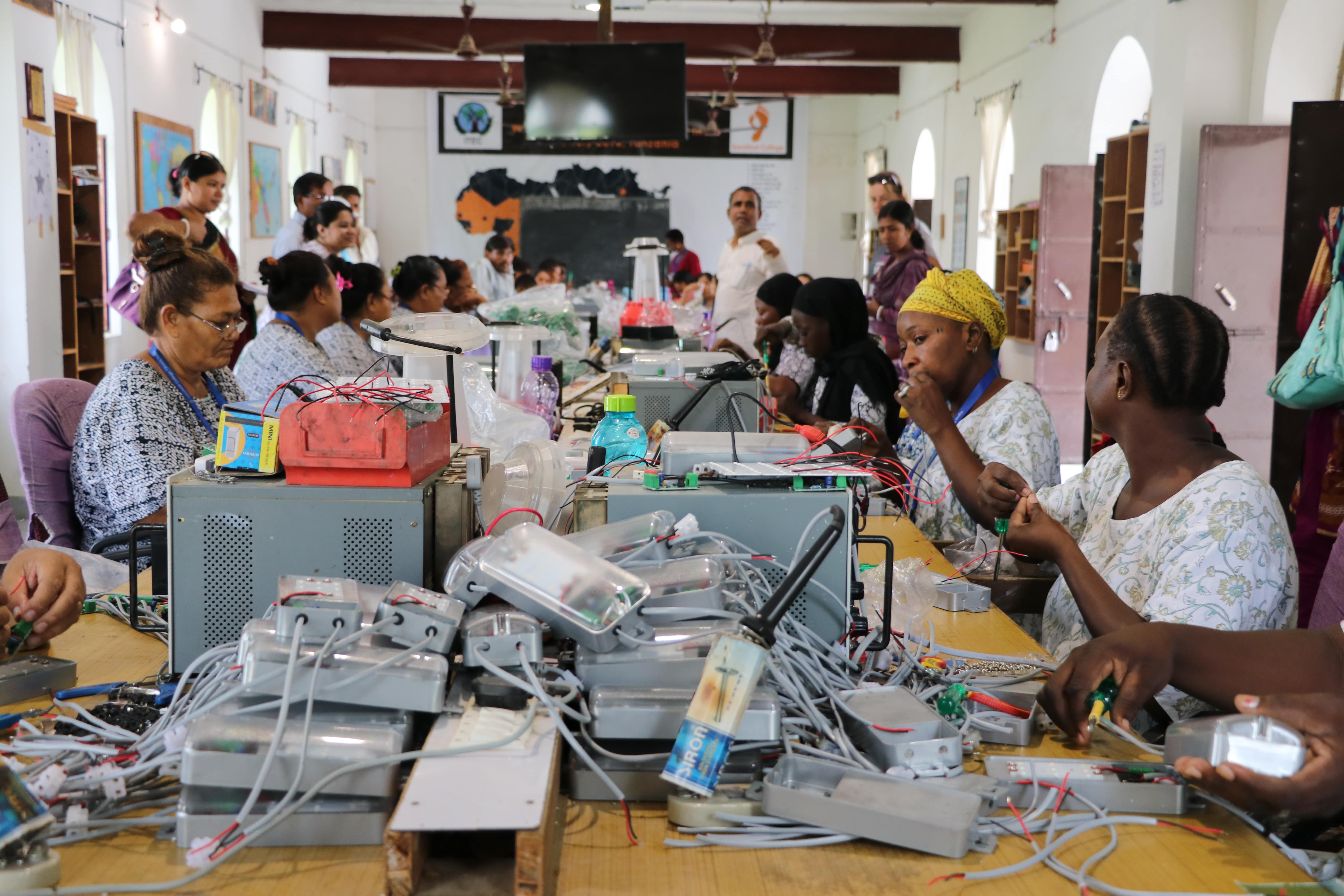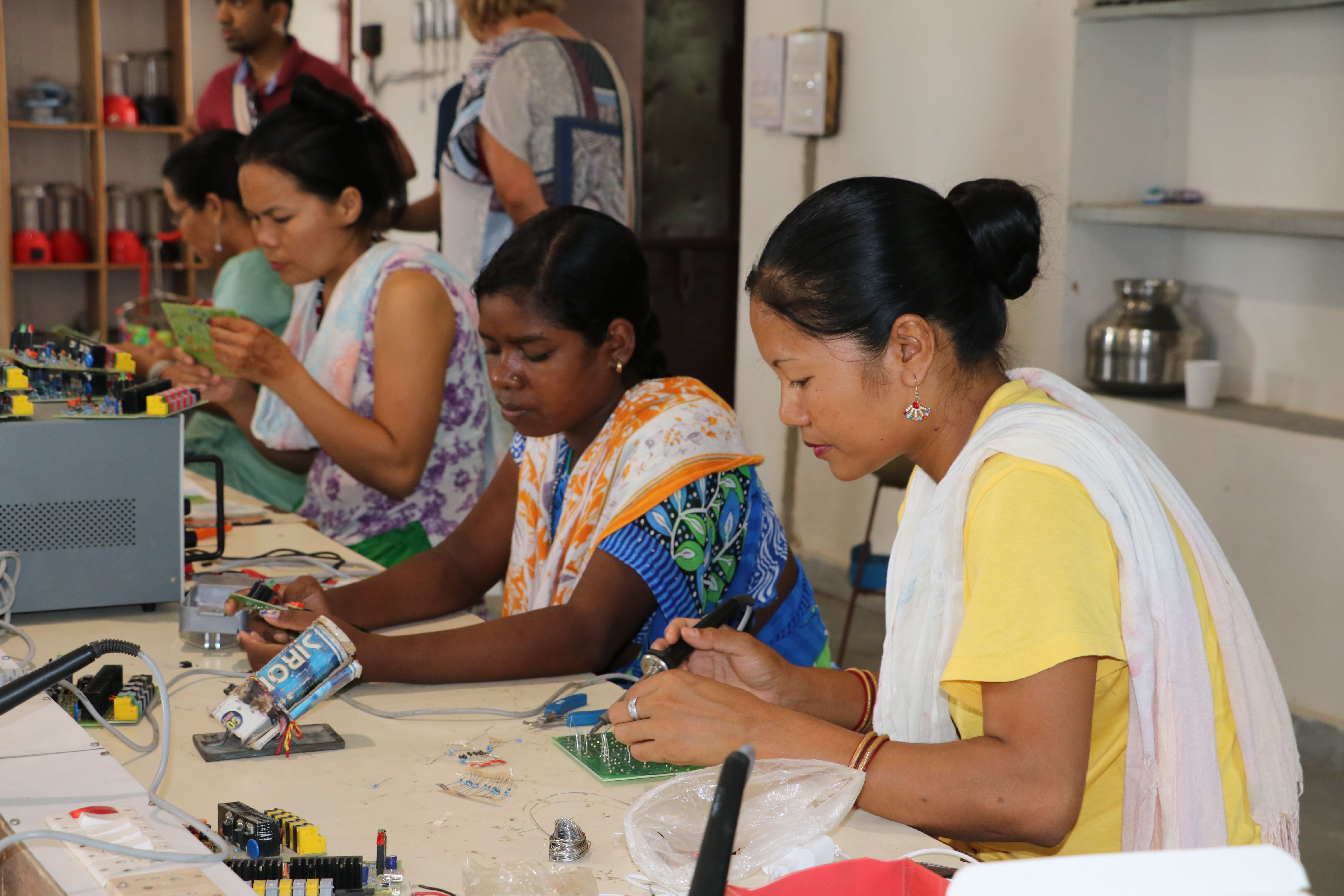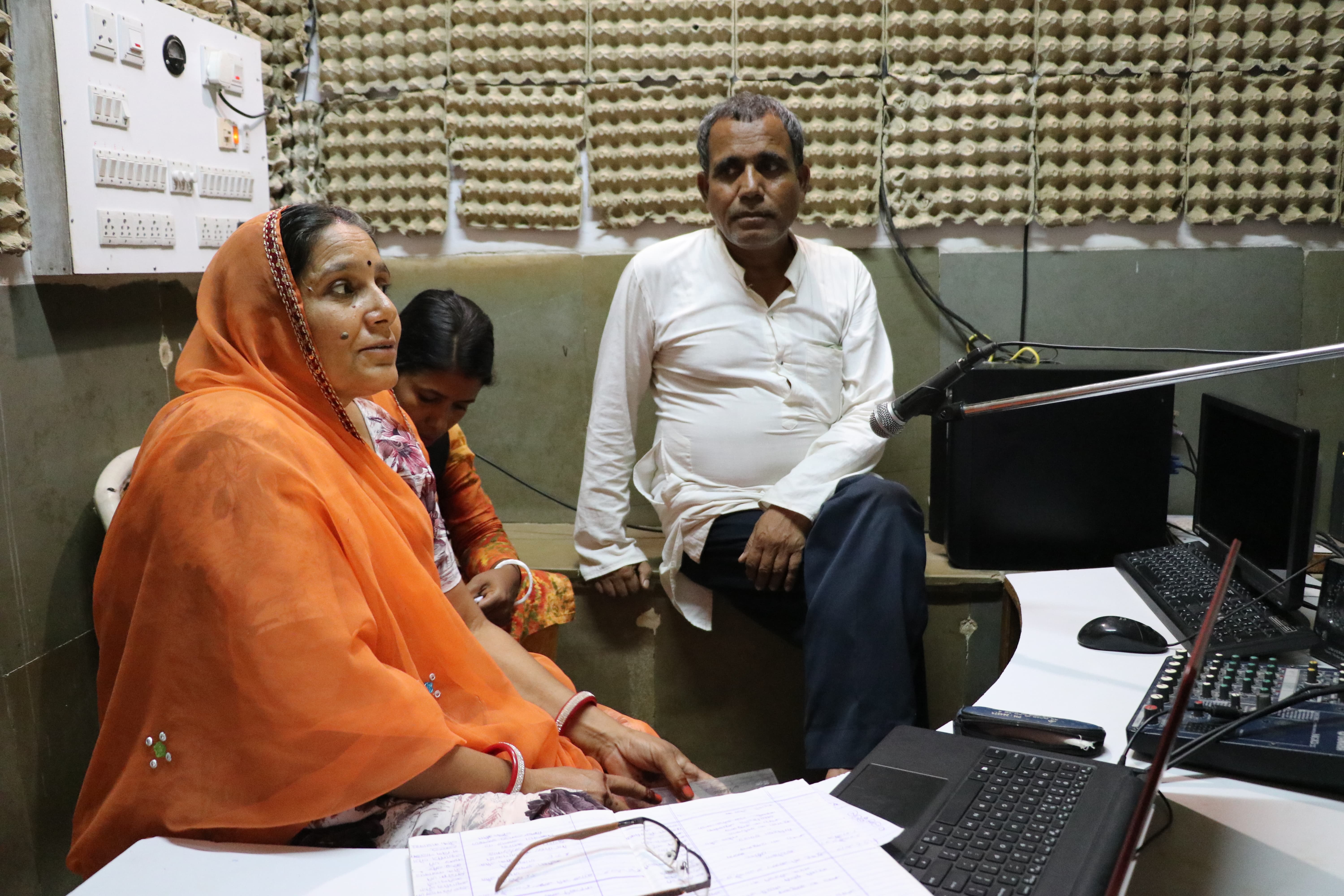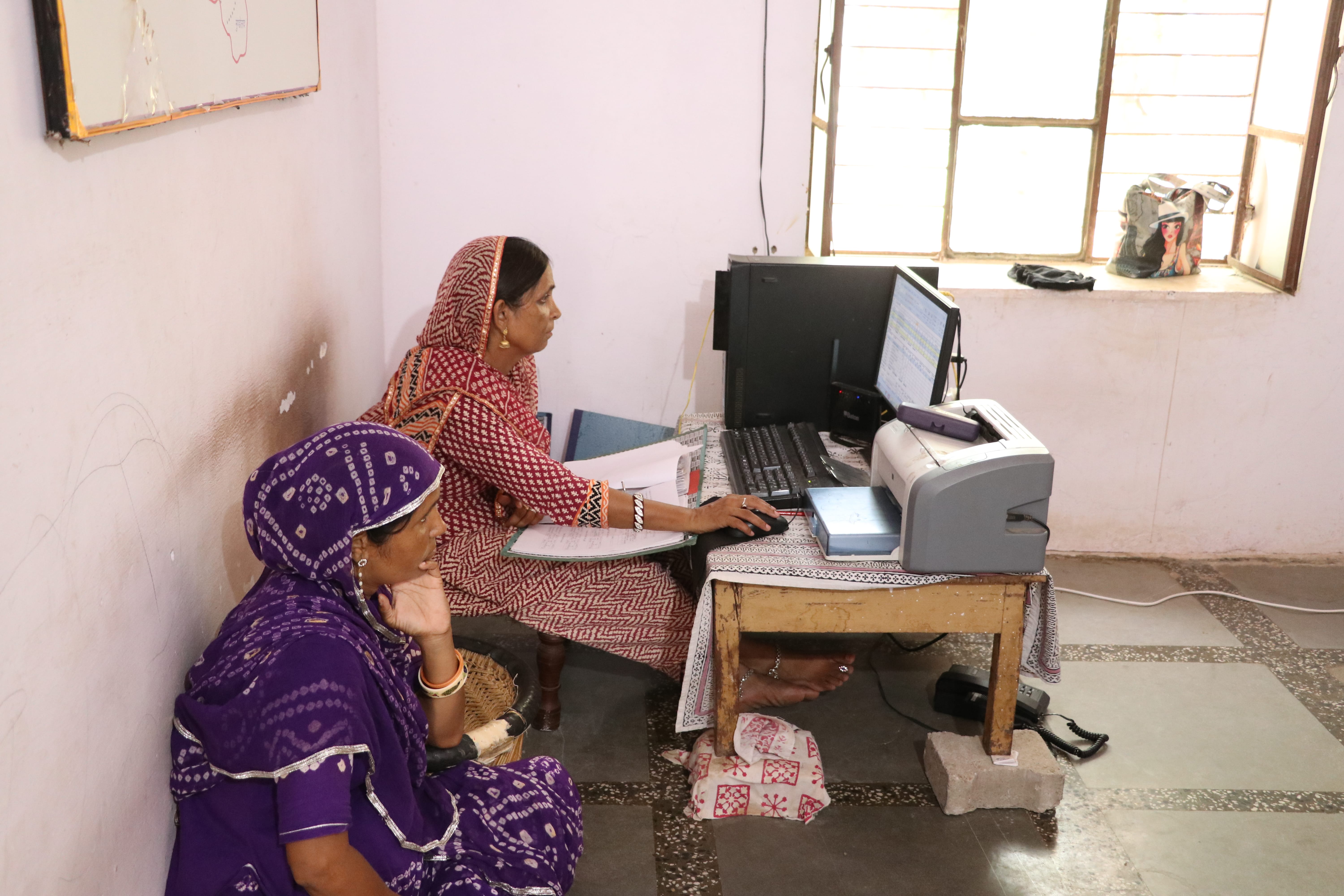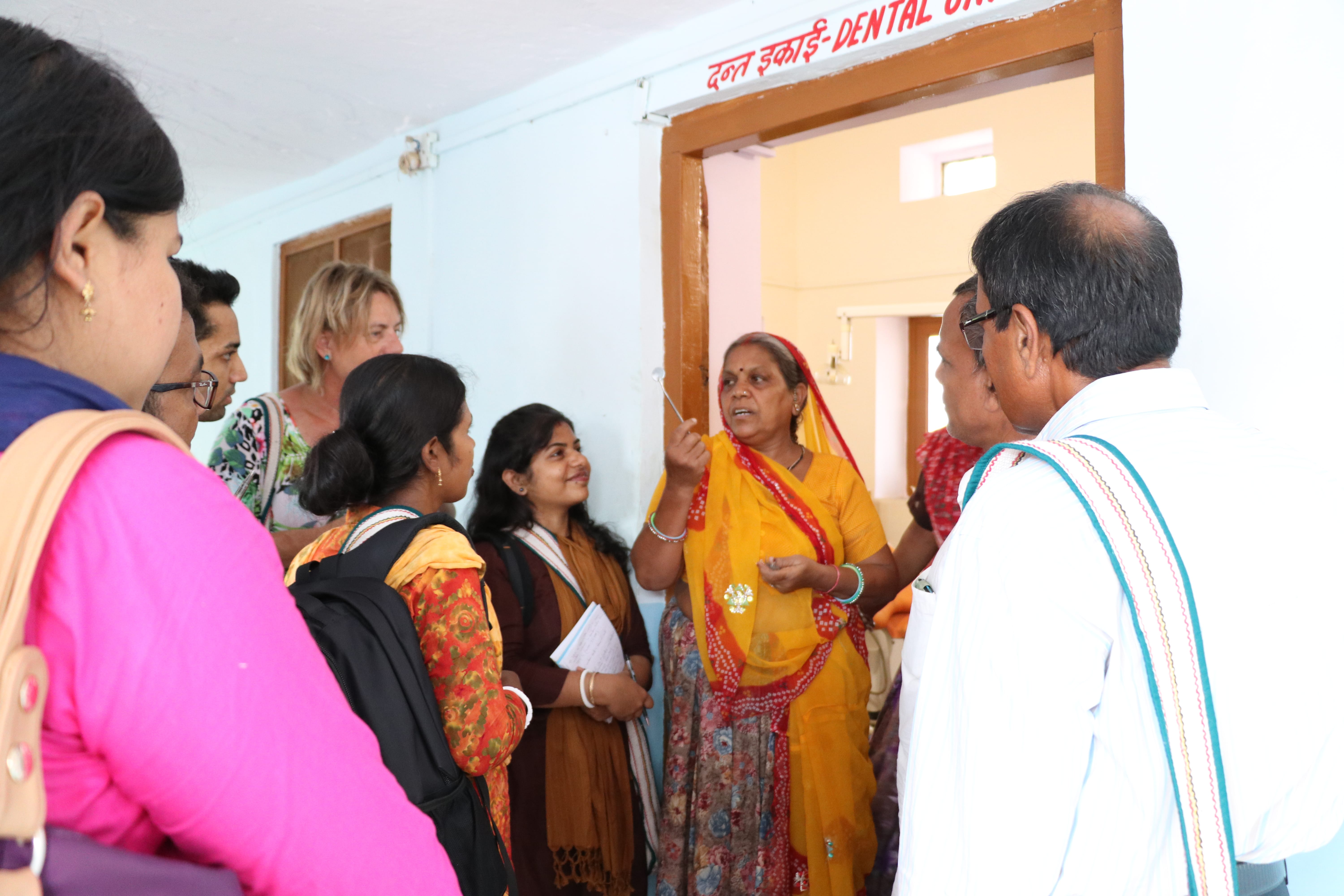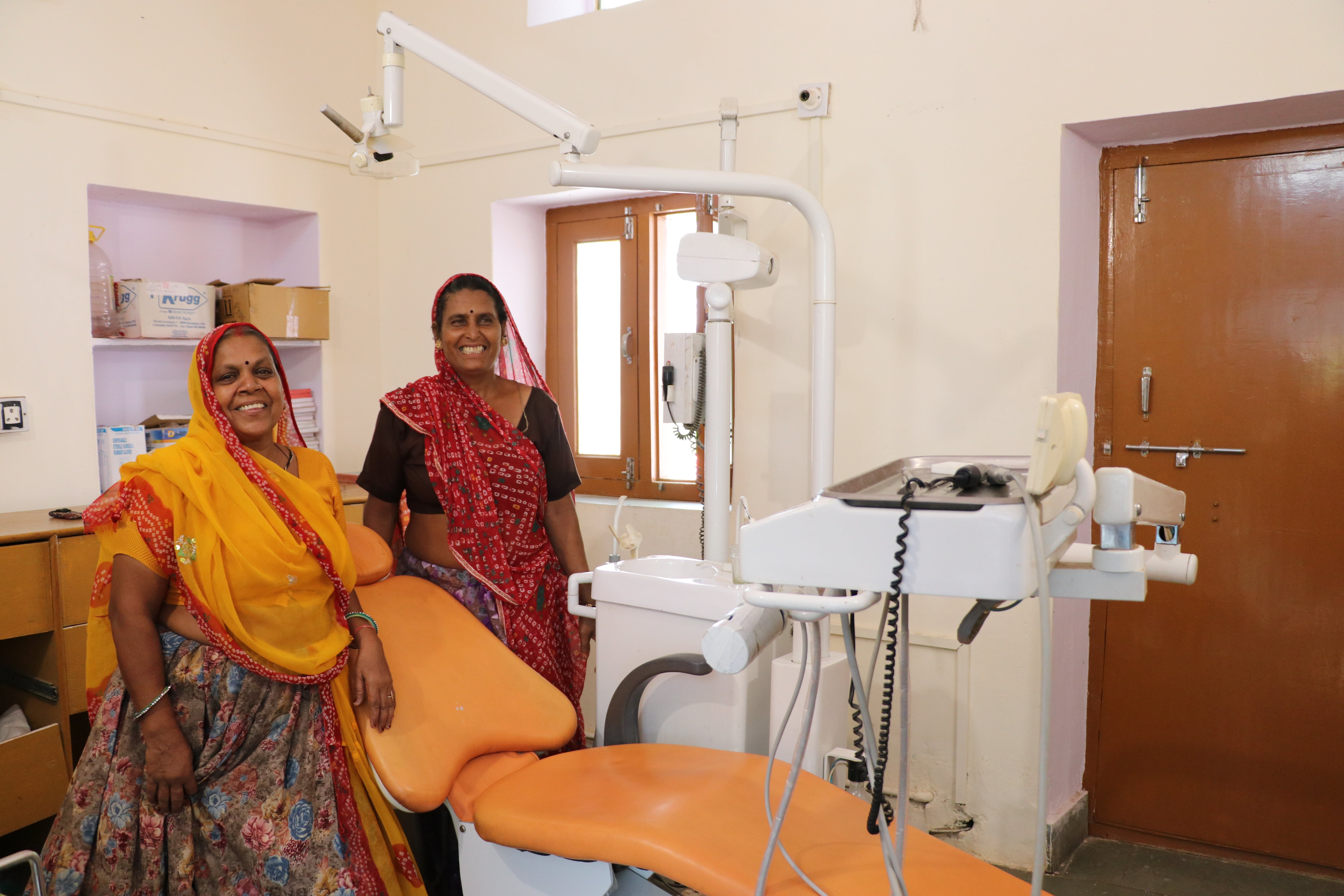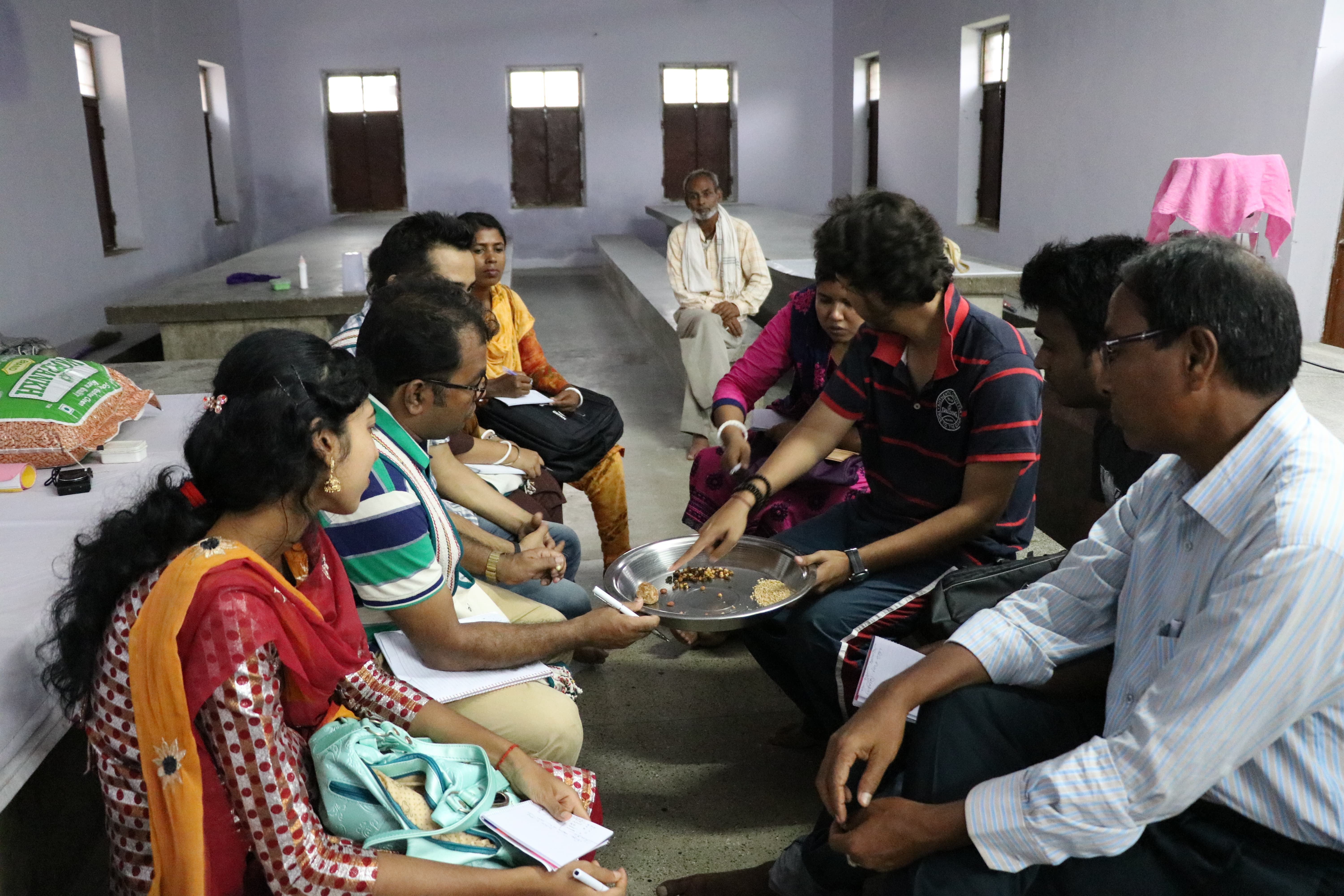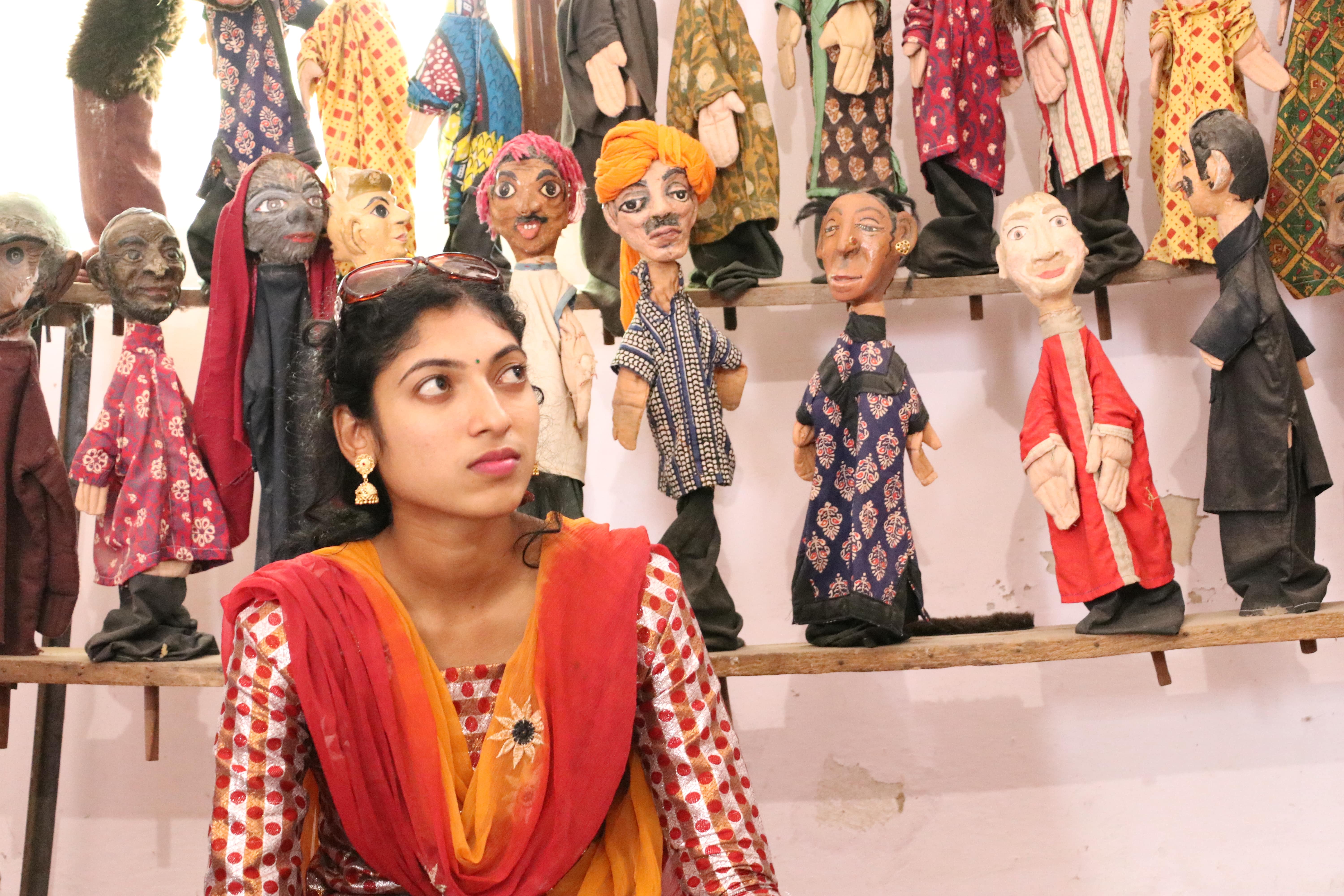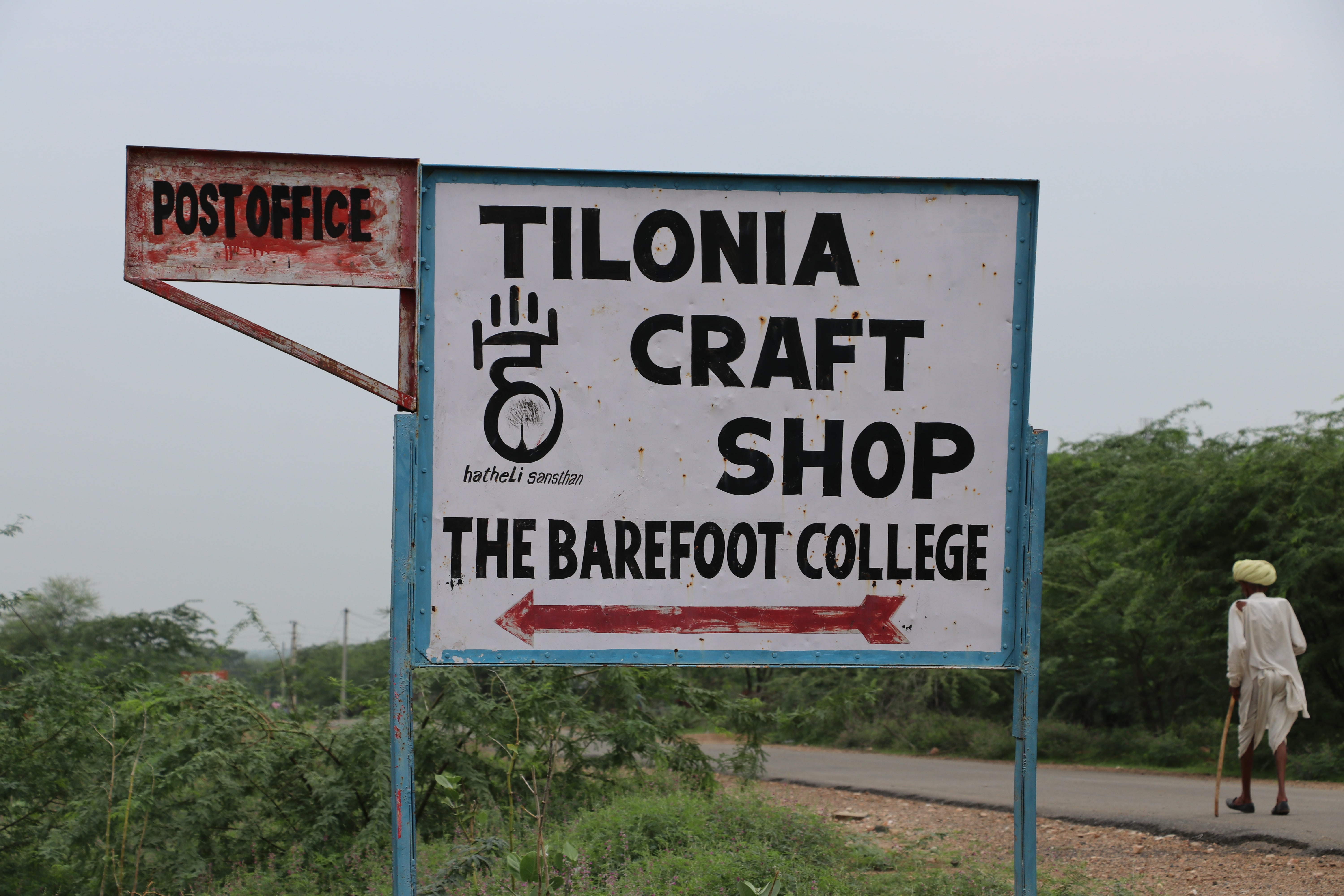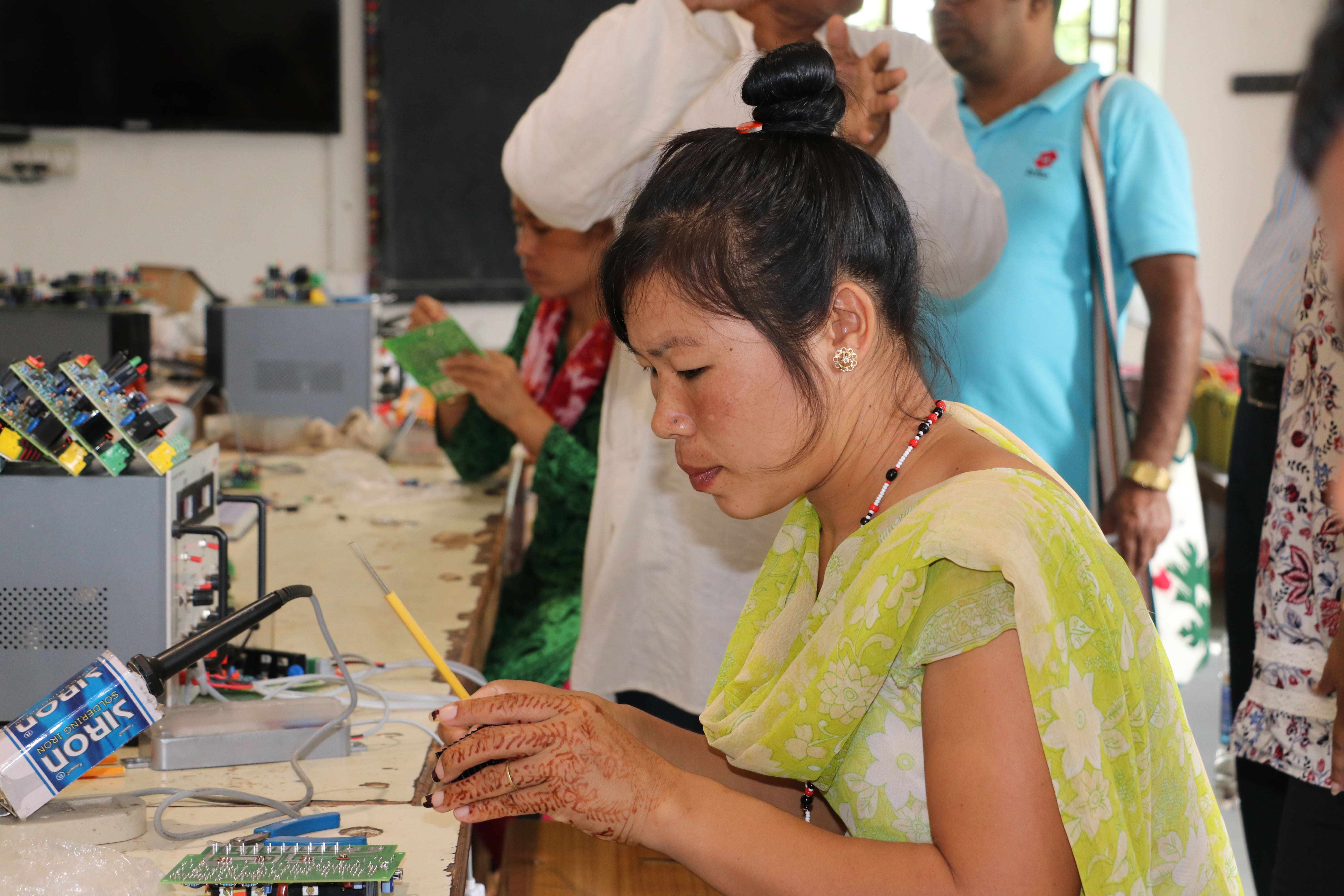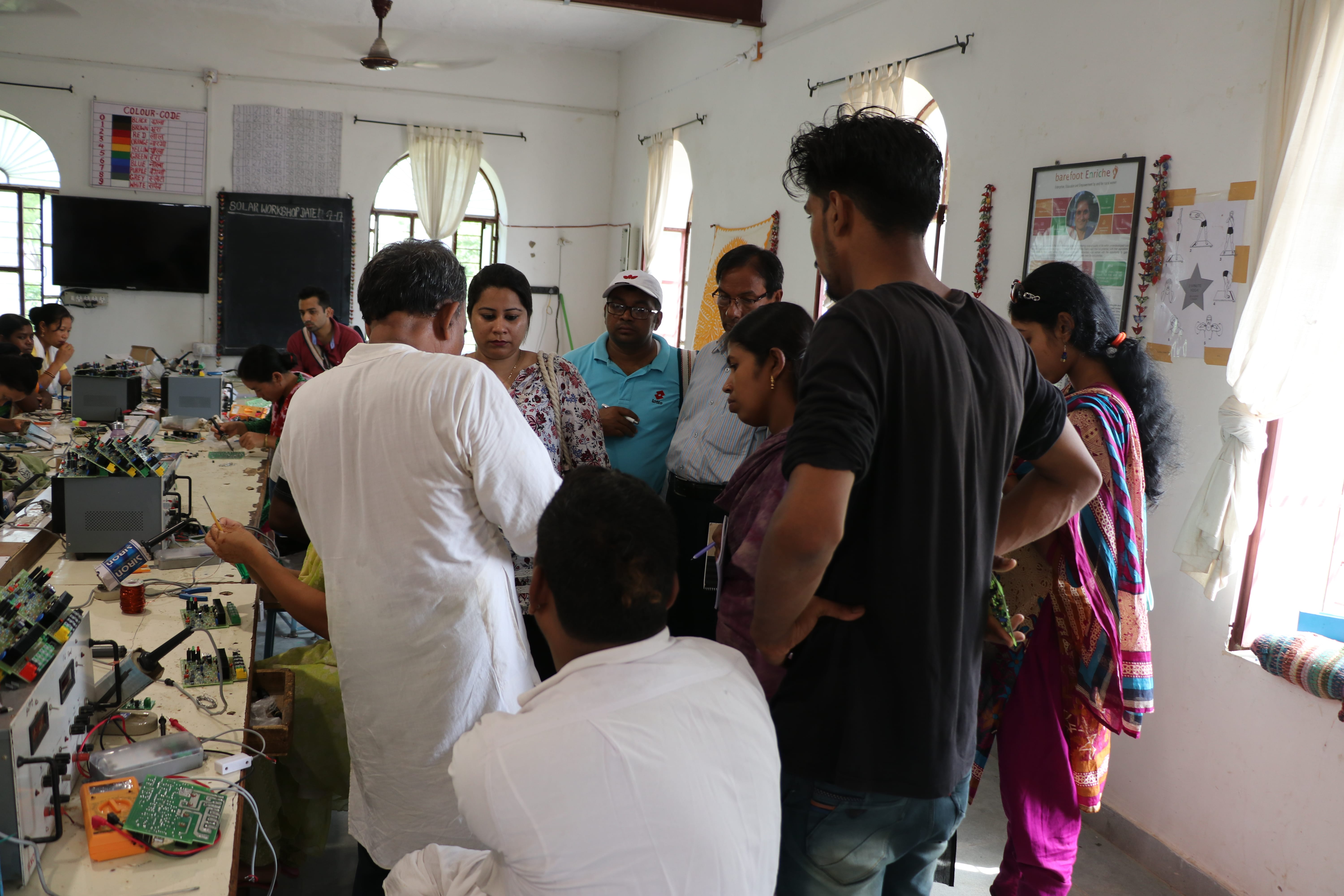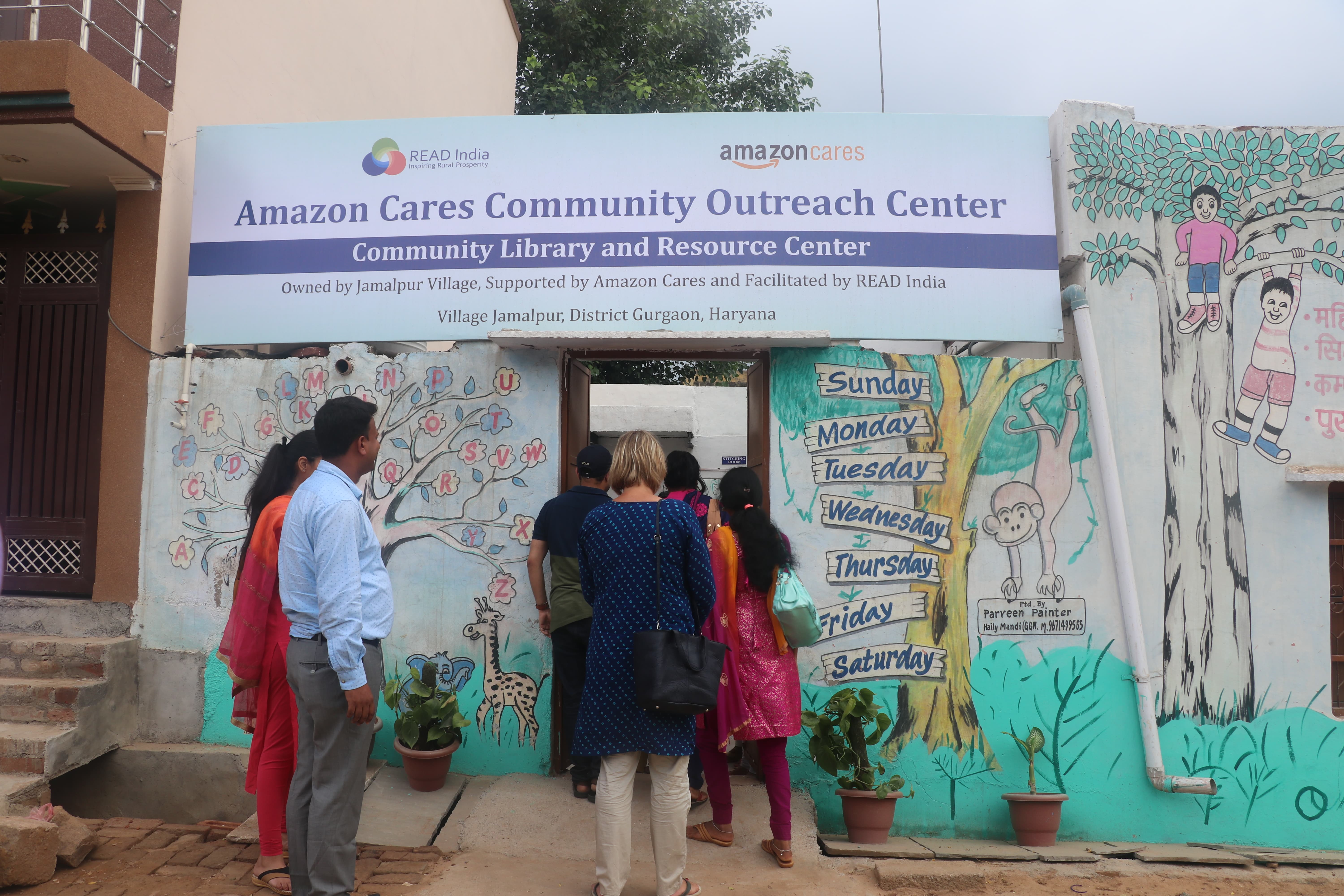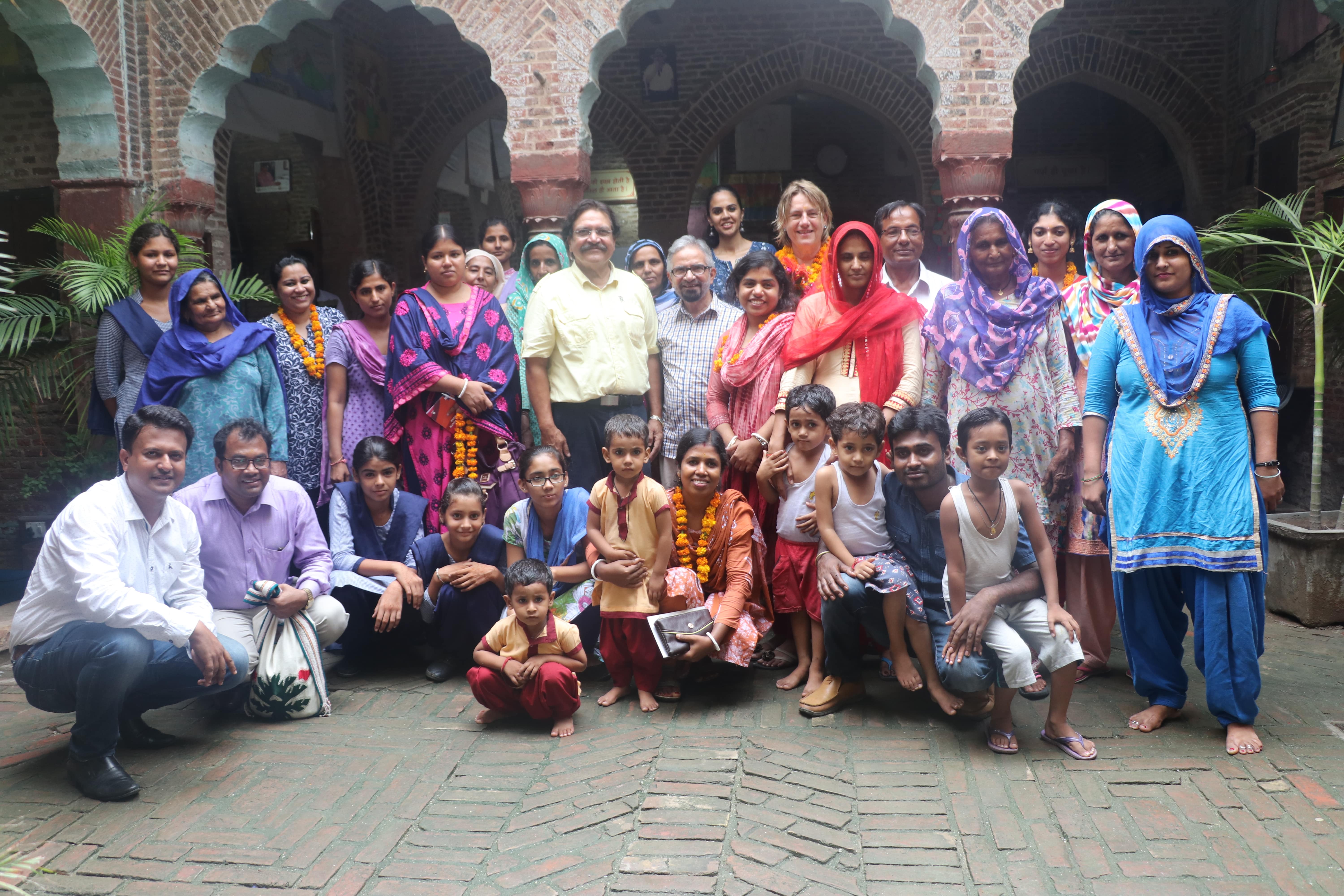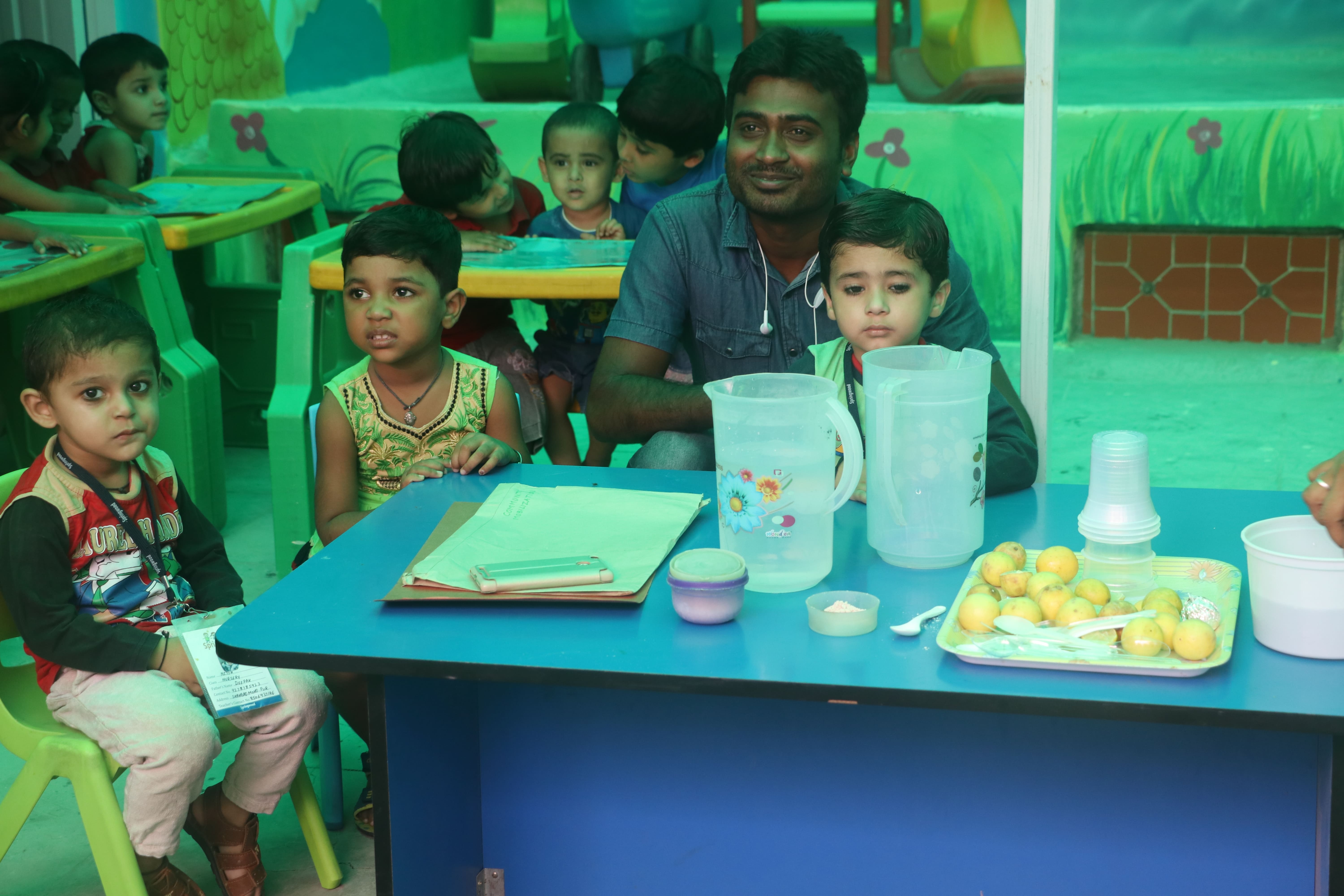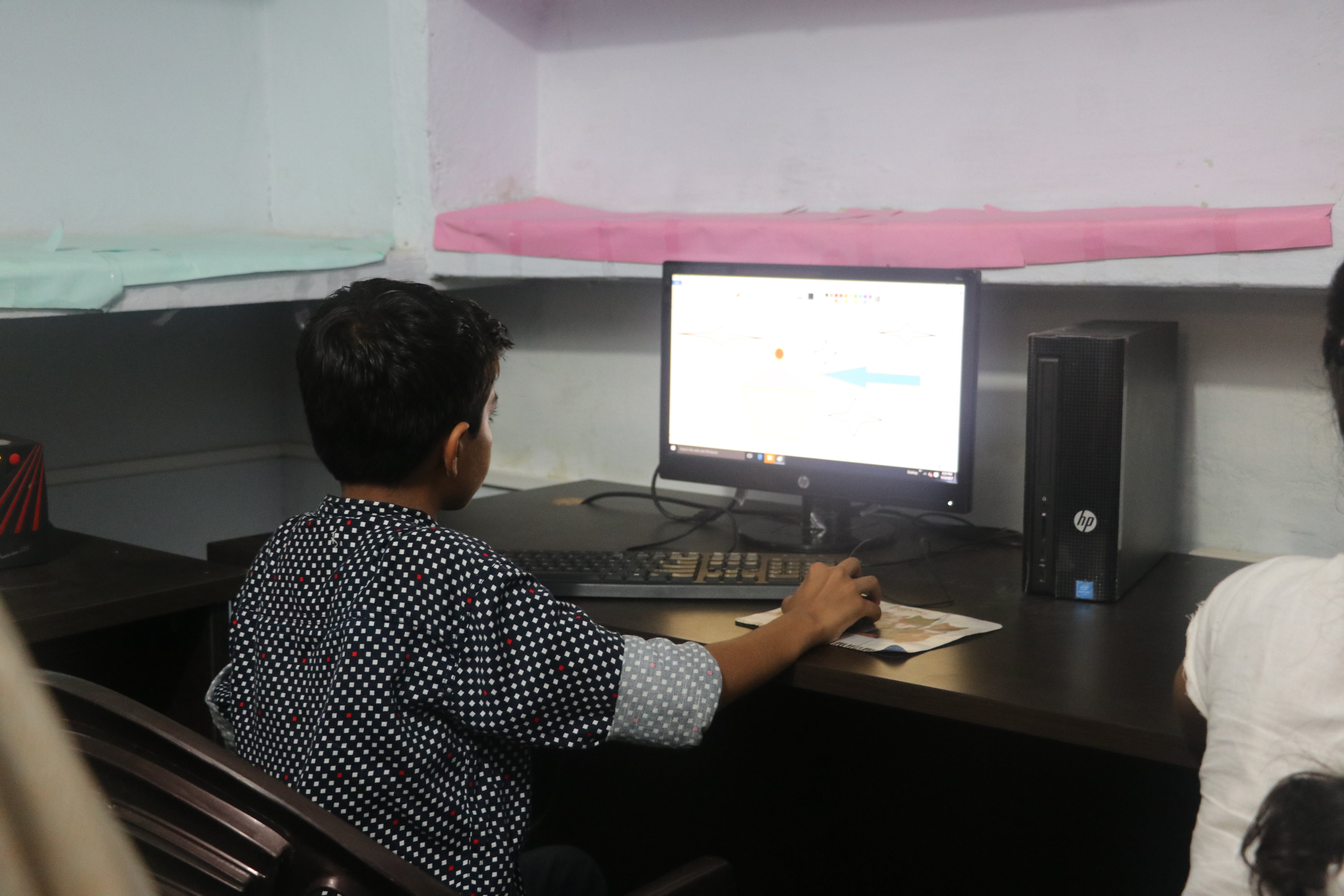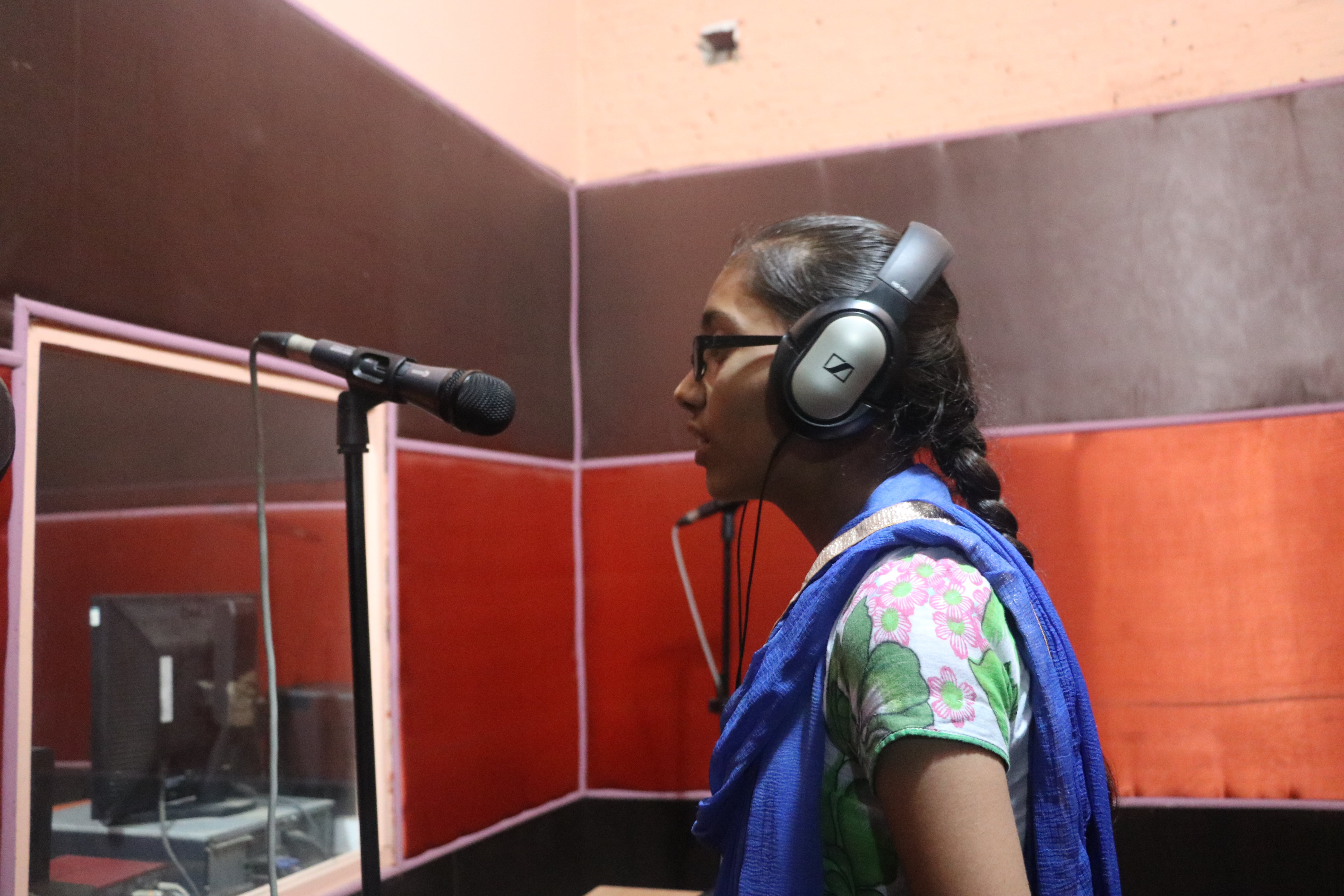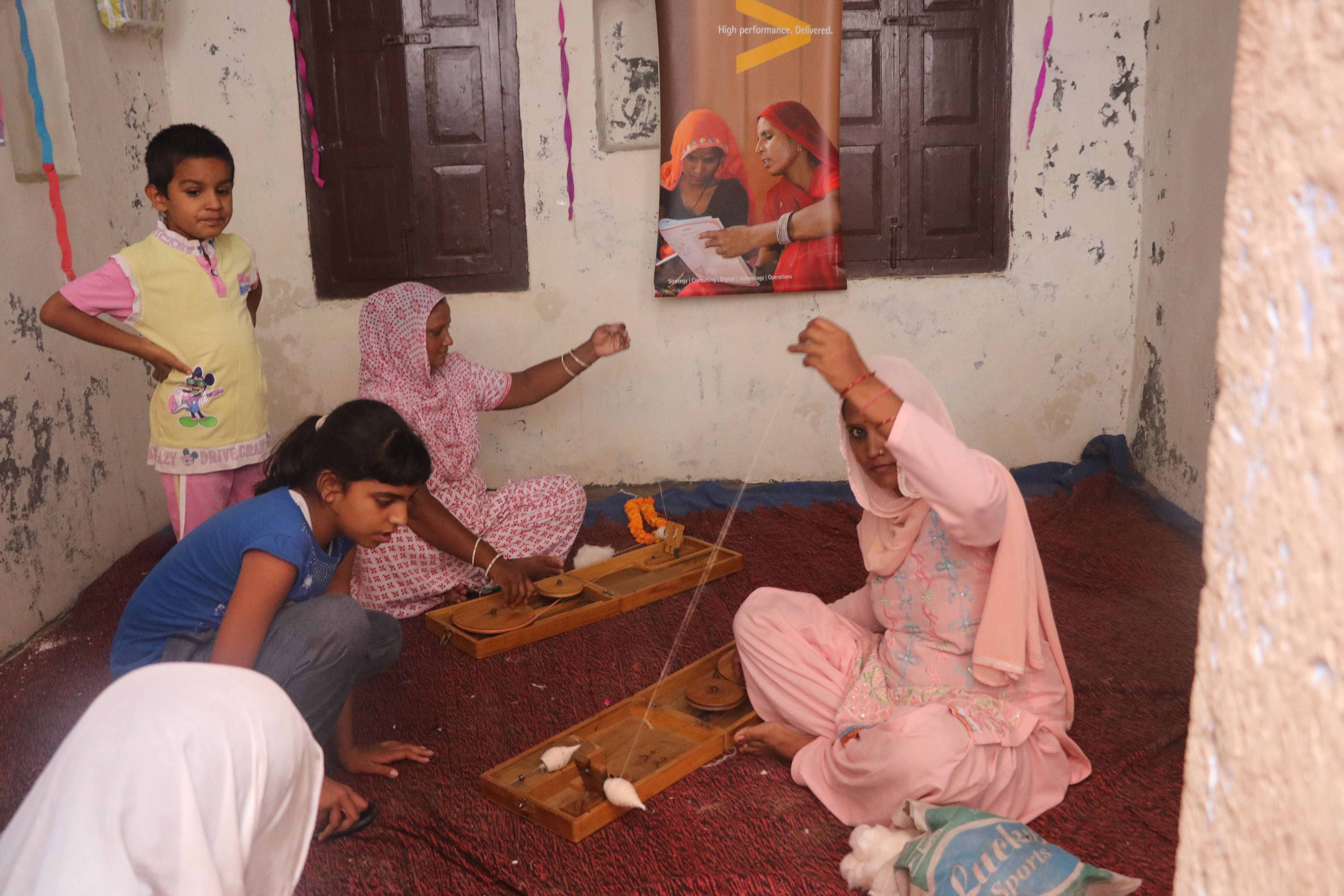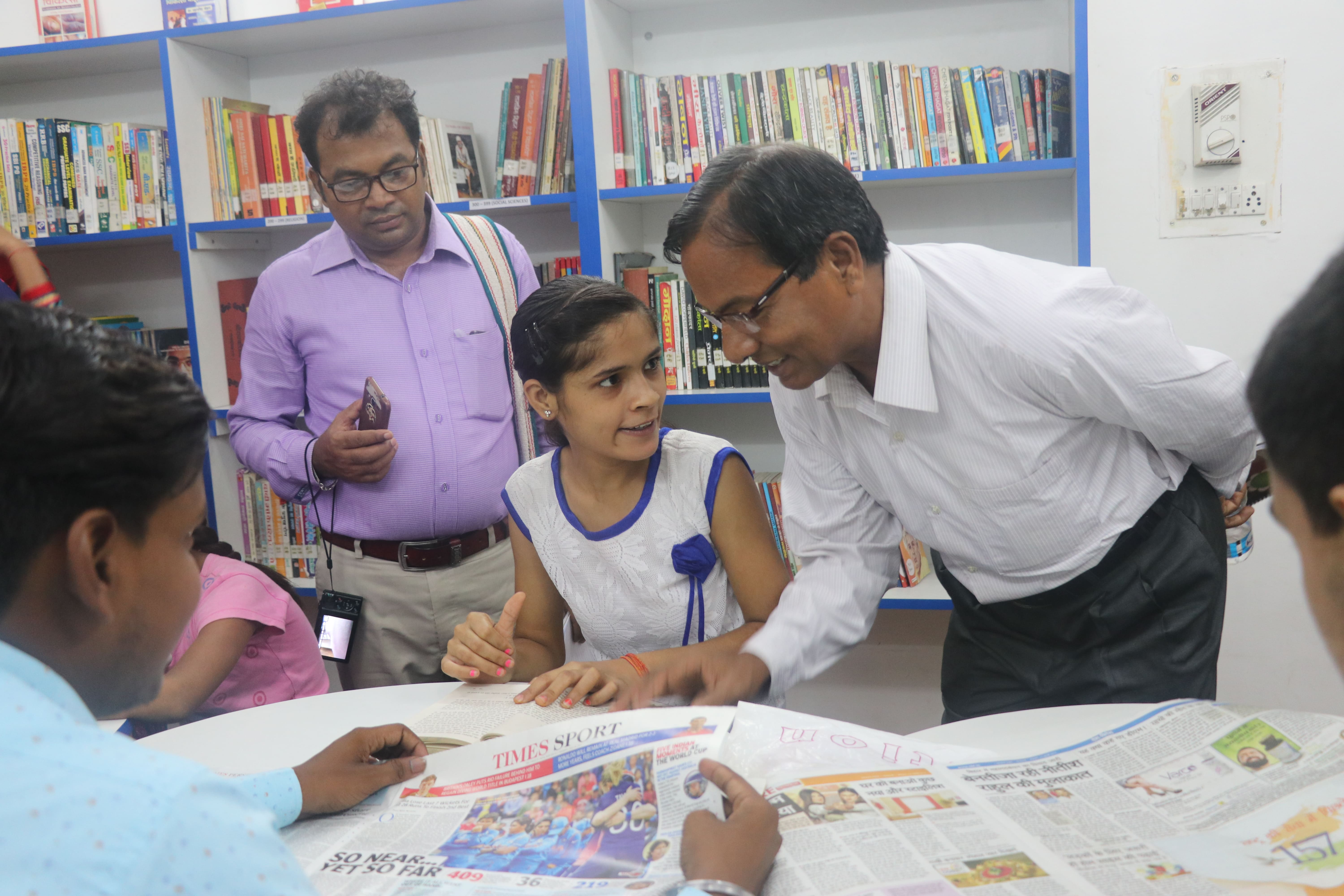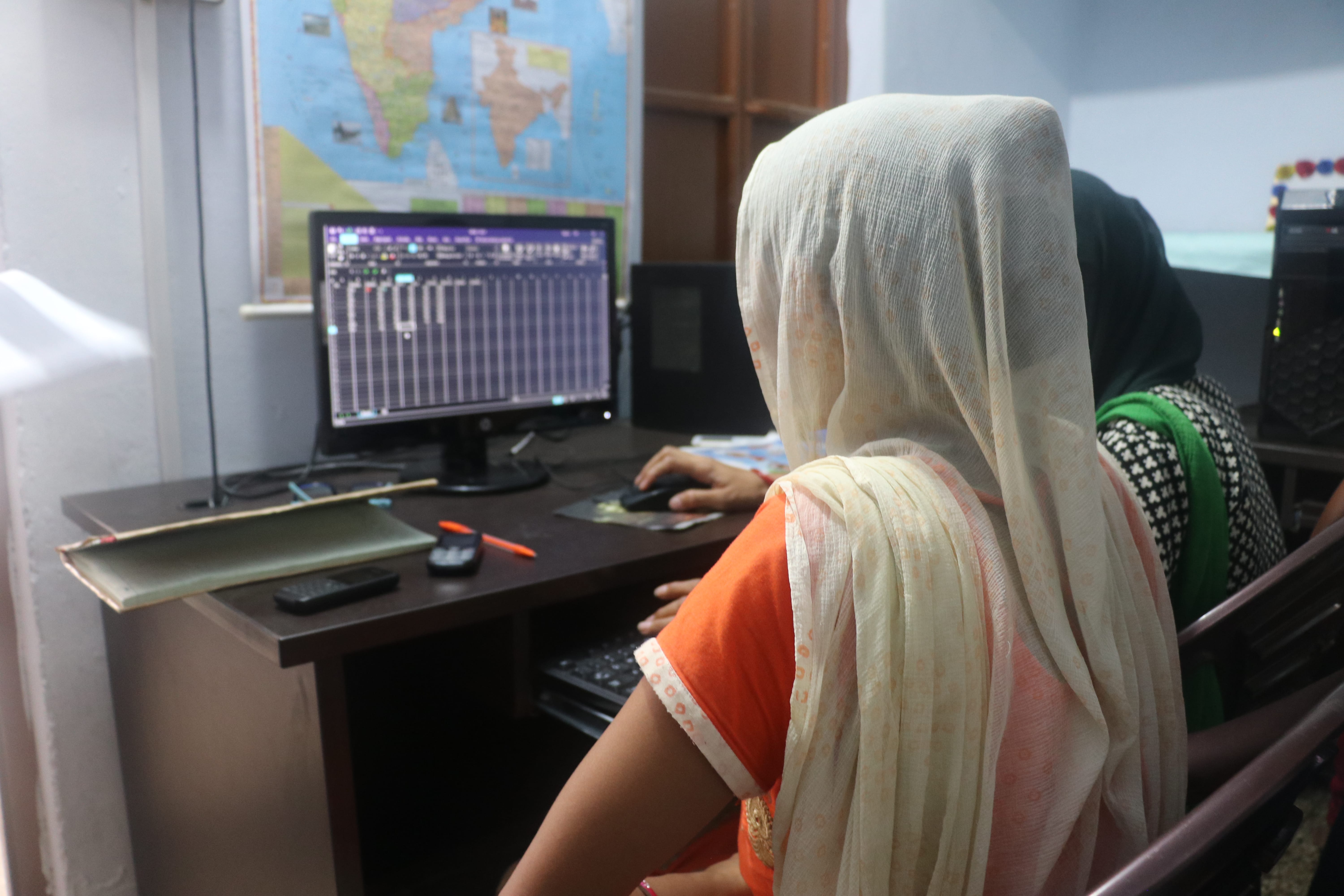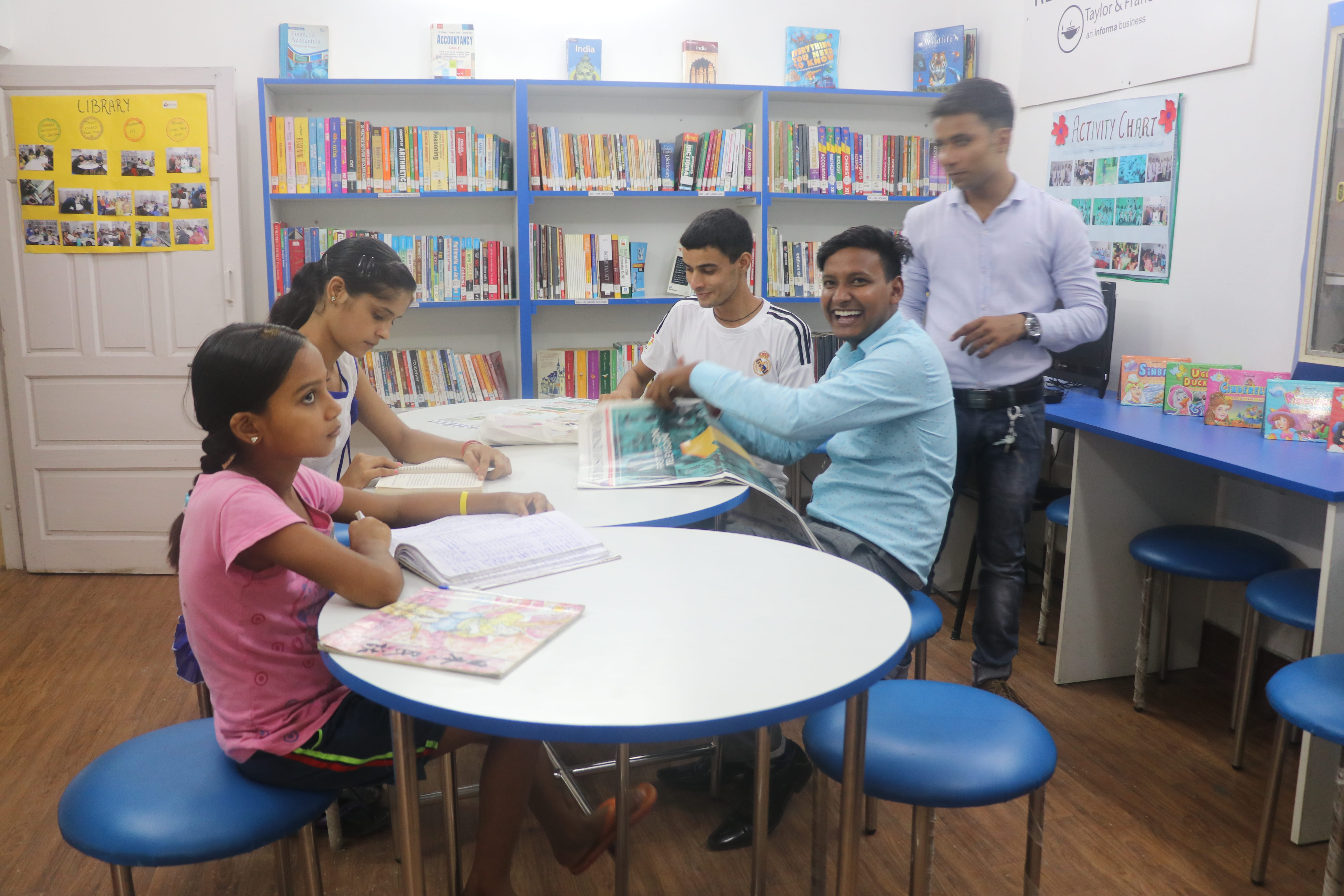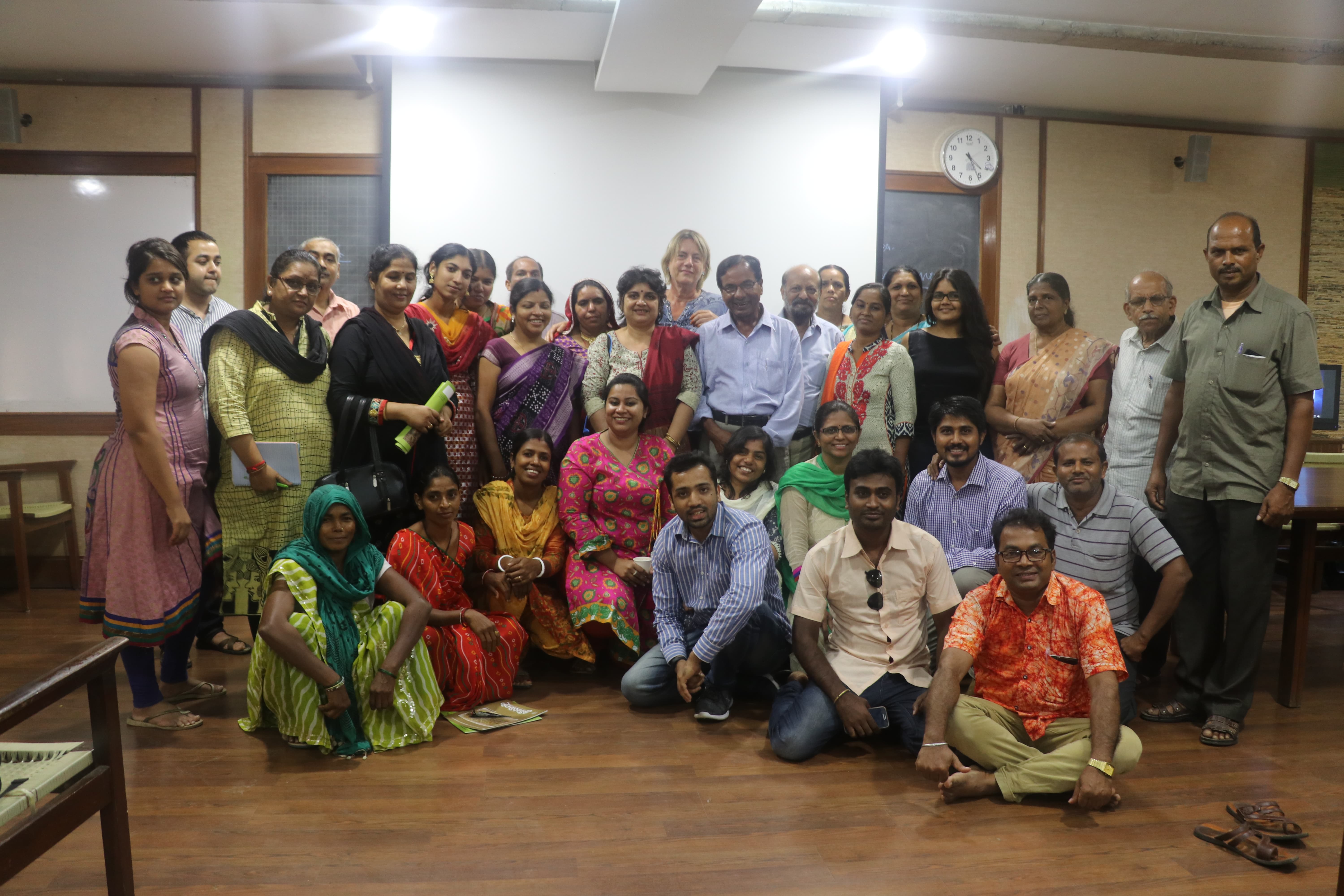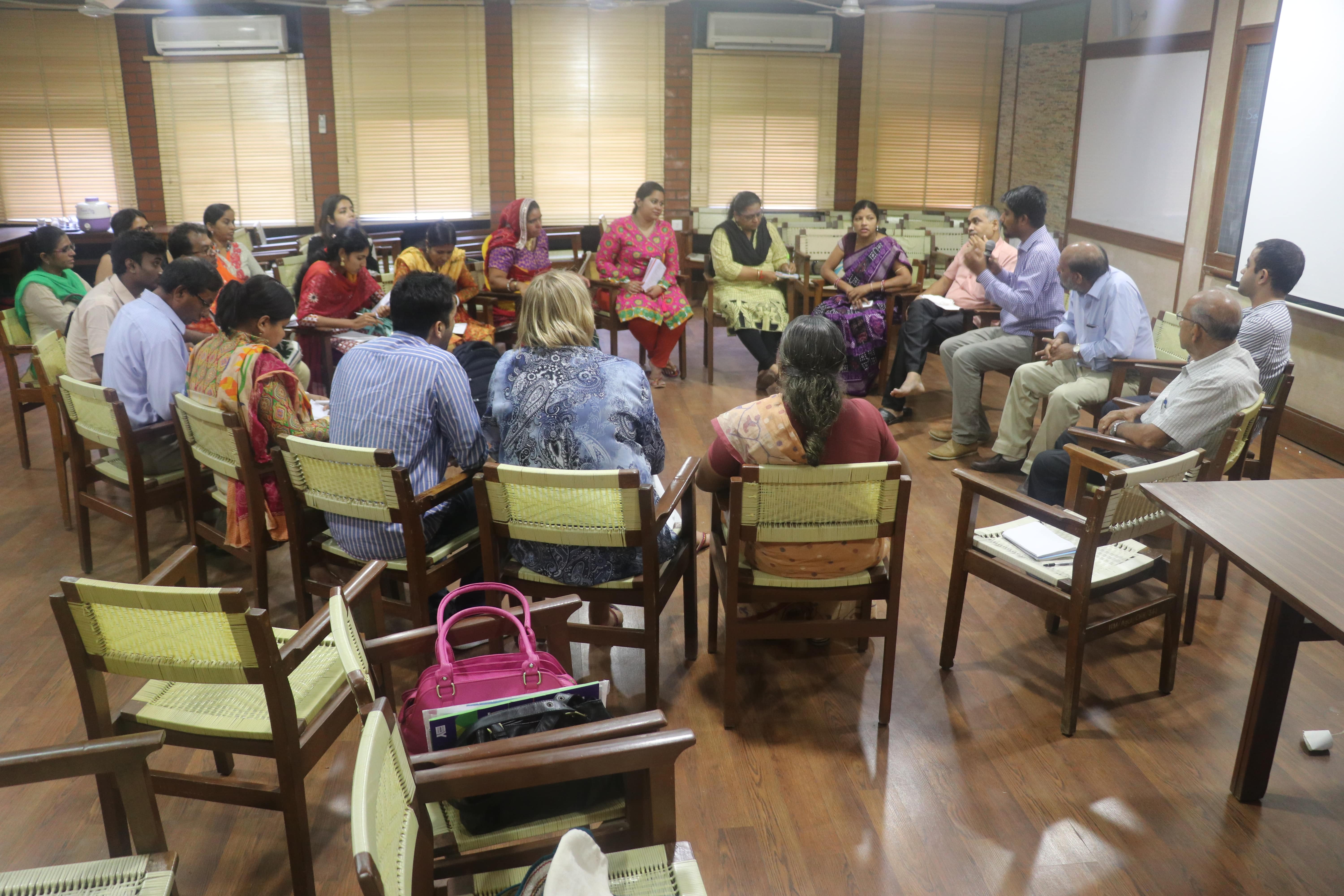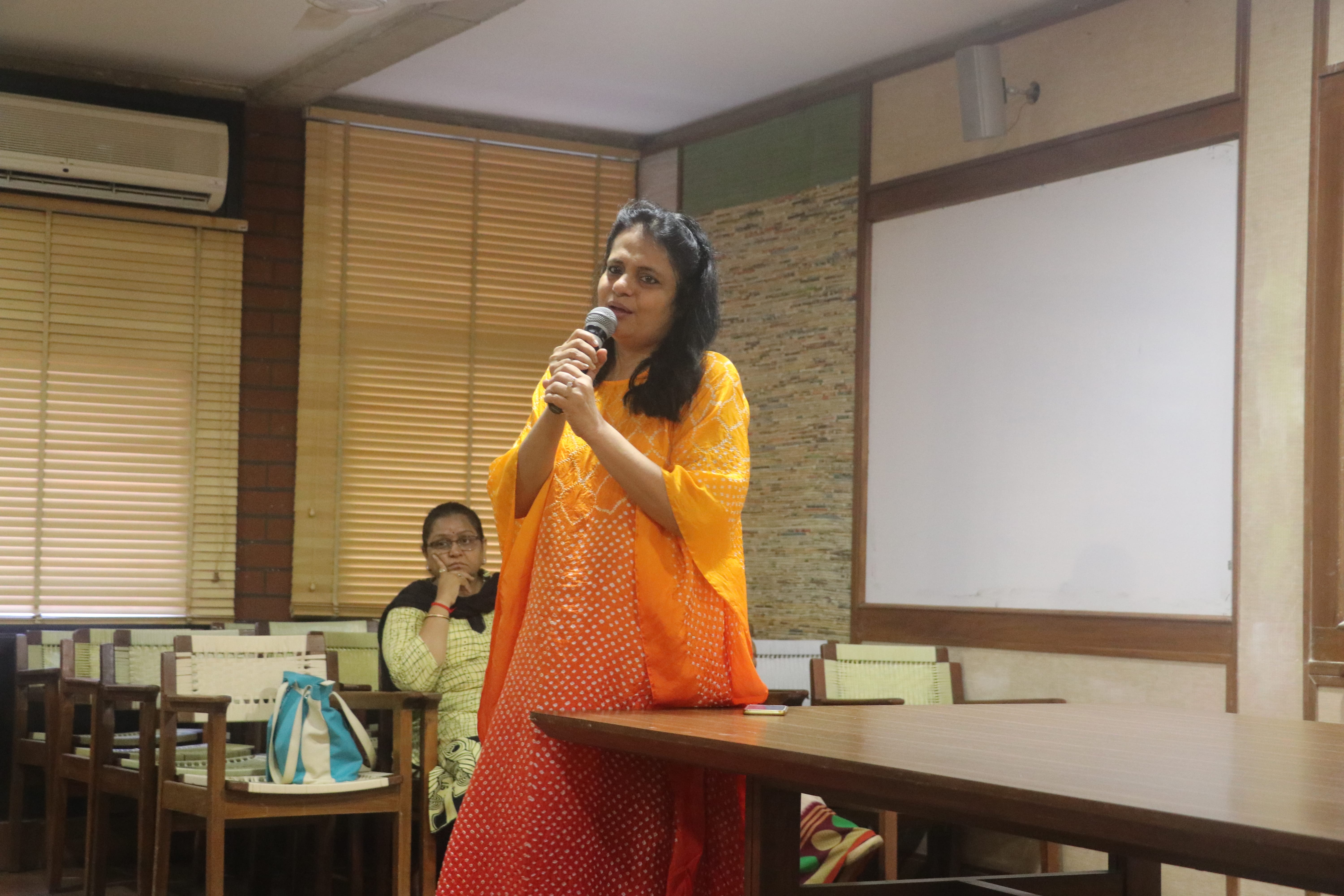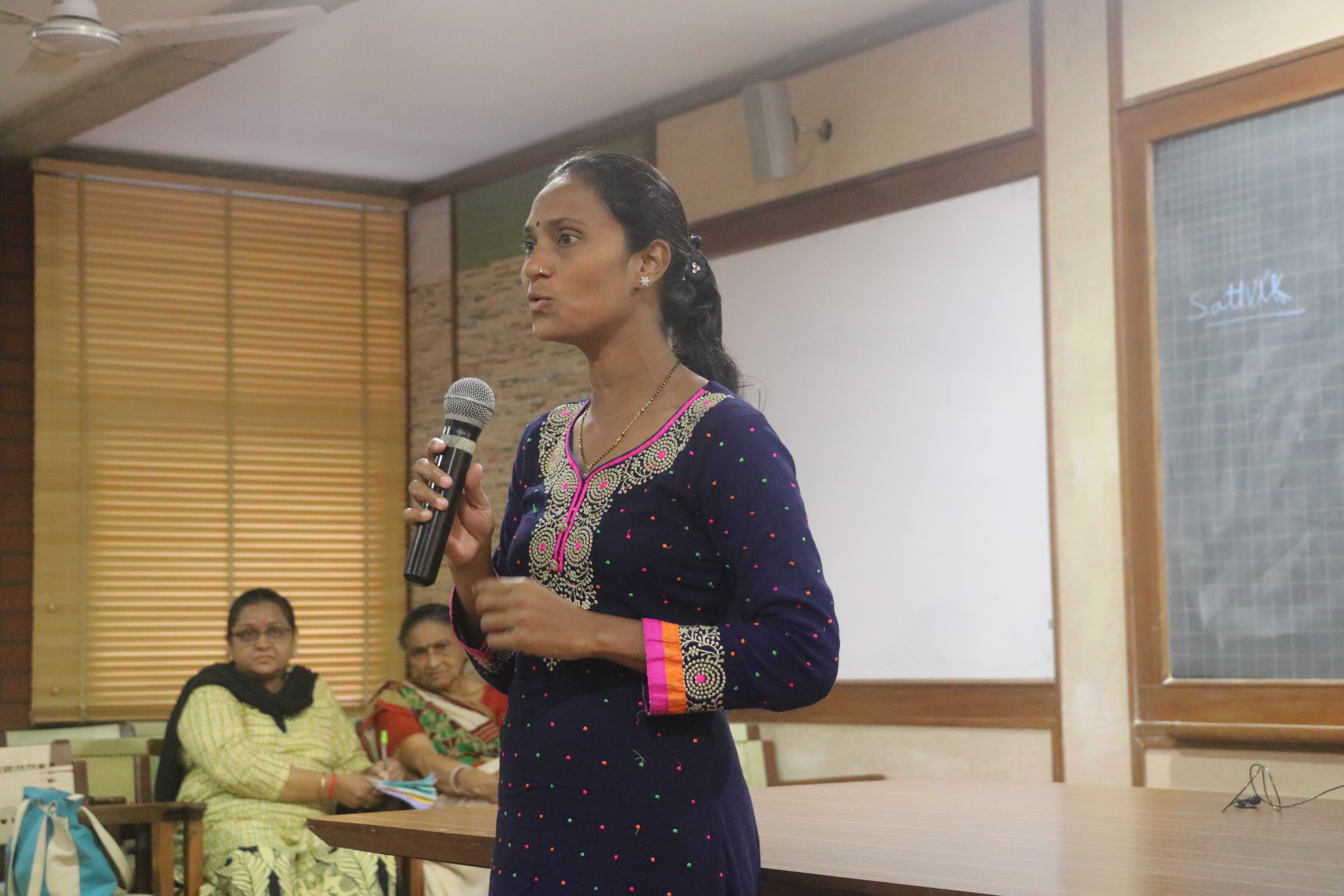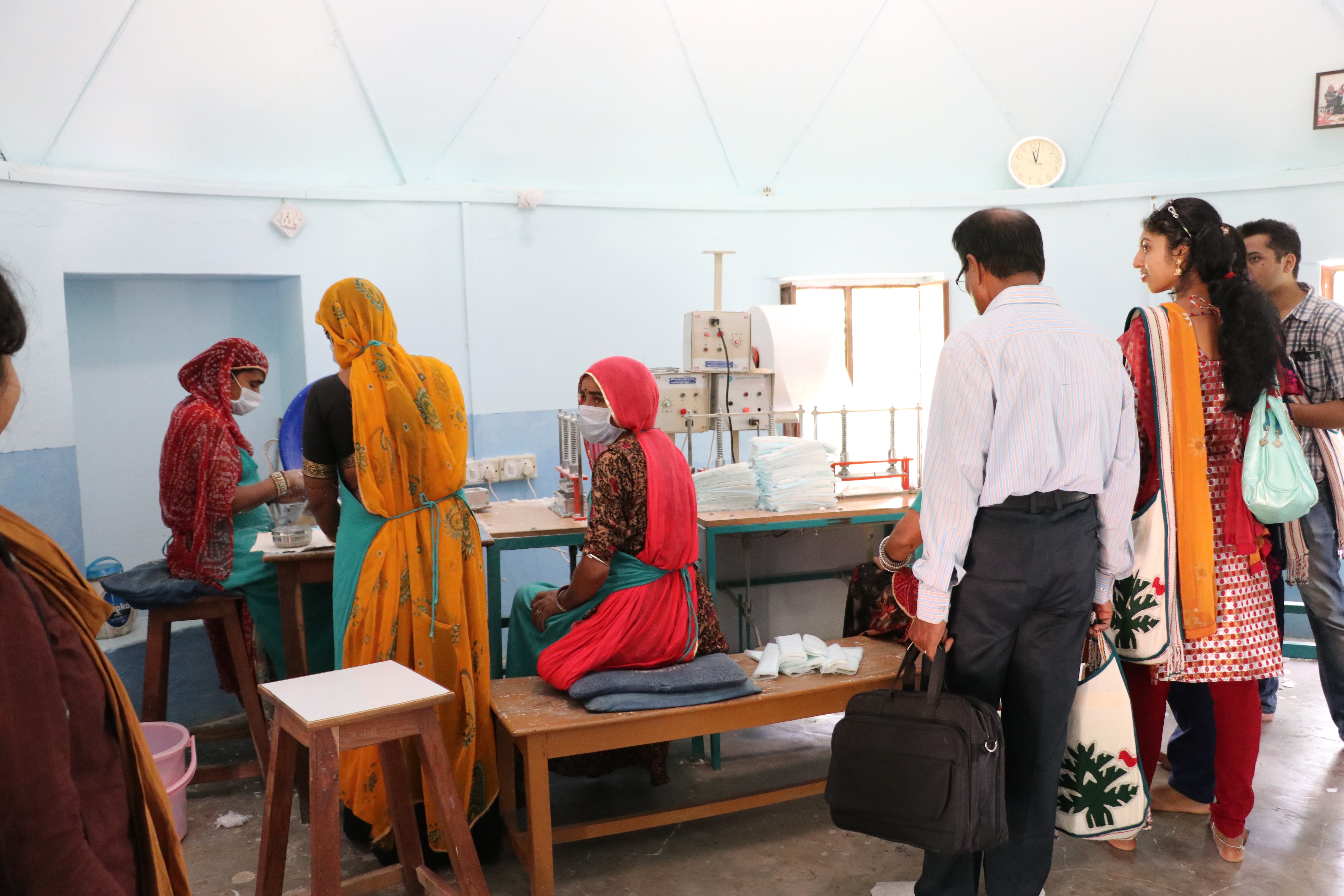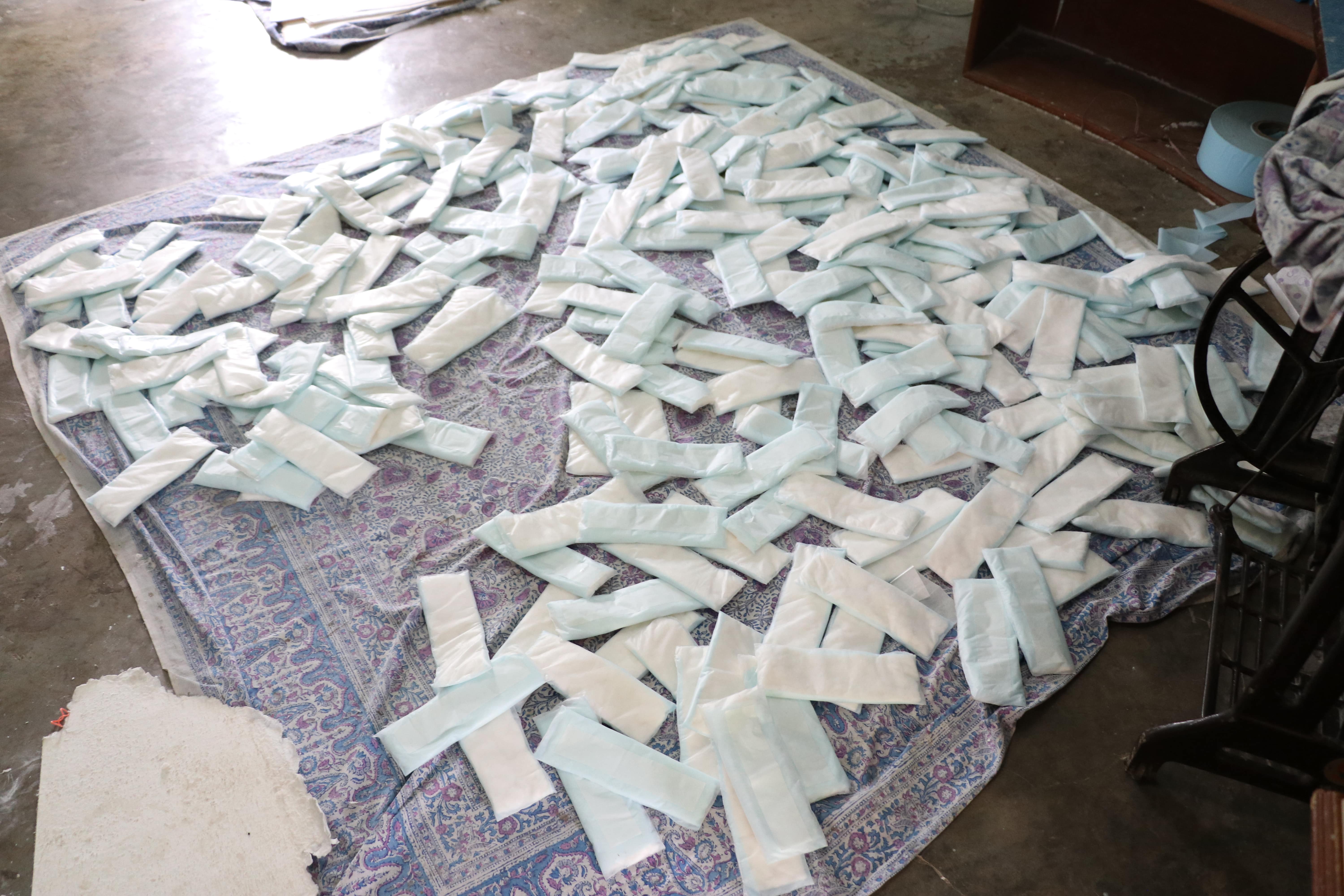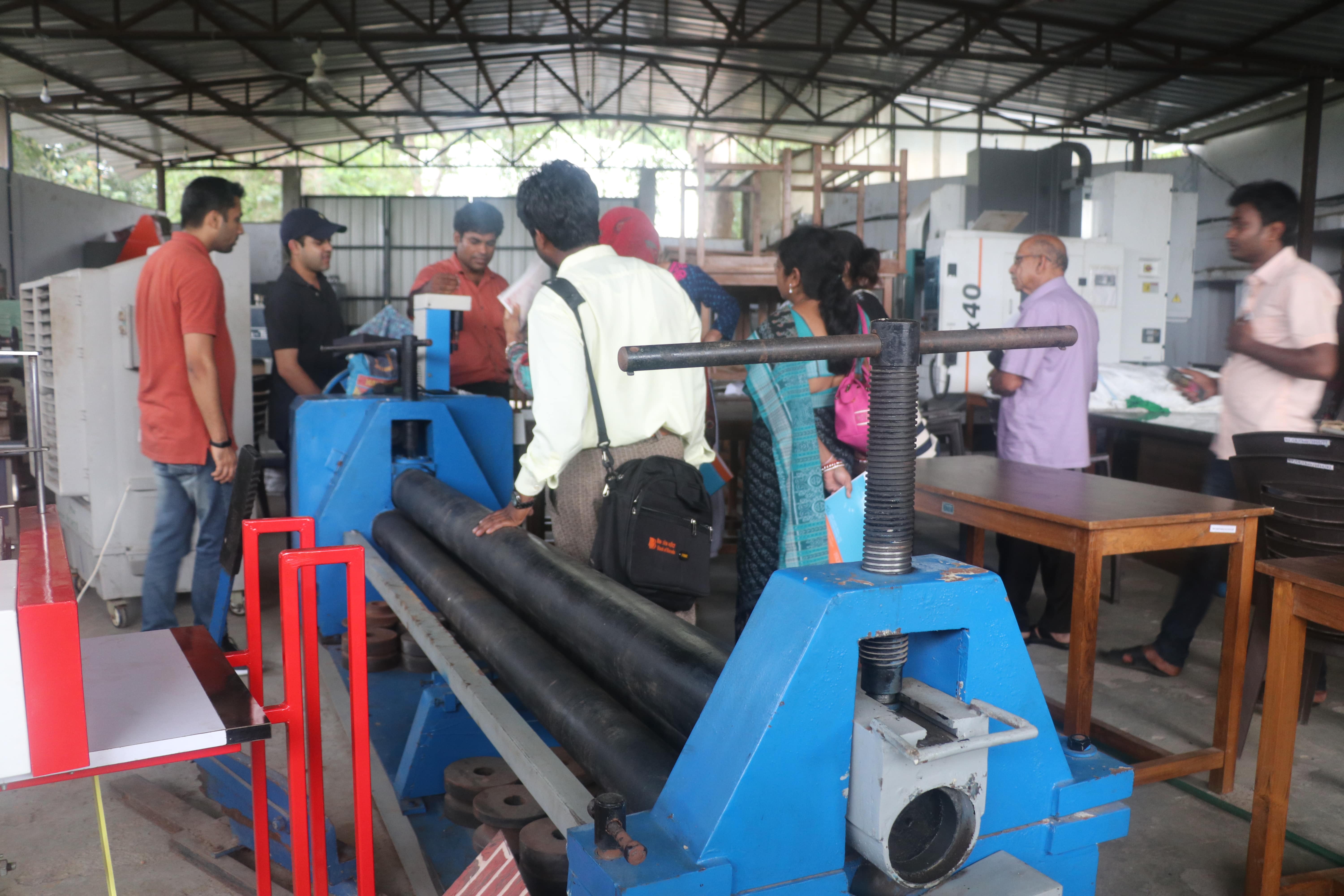Exchange facilitating
Exchange facilitating
On a 10-day visit in India the learning group of Bangladesh visited:
- Barefoot College
- READ Centre
- Honey Bee Network.
It was a full programme with meetings, lectures, and seeing in practice. Each initiative has different approaches for their local challenges. This made the visit a rich experience in which the group learned many new insights and knowledge to tackle their own local challenges.
Interview with Toma Rani Saha
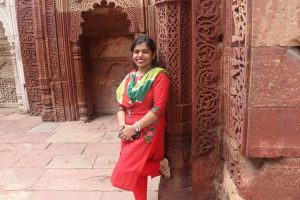
Toma Rani Saha is the junior project leader for Empower Youth for Work. It is her first time on an exchange visit of E-Motive. In an interview with Maartje Willemijn Smits, from Utrecht University, she tells about her experience.
Maartje Willemijn Smits: "What were you expecting from the learning exchange?"
Toma Rani Saha: "I was expecting to learn innovative models about entrepreneurship, and also how network building works, as well as marketing kind of things. In our country, what happens when we want to invest in a new product, for example in a rural area, is that the economic activities do not have the market link. In this way the producers cannot work for the right price. I wanted to learn about the marketing skills, networking, the mobility issue, and entrepreneurship.
When we do something here, the community depends on us. Instead, we want to make them independent, so they can do their economic development by themselves, and the community can take and own the model."
MWS: "What has been your biggest learning?"
TRS: "I have a big list of learnings. I would like to mention a few things. The first thing is community ownership. If we want to sustain something of community living, we need to ensure the ownership of the community people. We need to talk with the community people. We need to involve them in the decisions. We need to make a committee of community people. Community ownership is very important for any kind of activity if you want to make it sustainable.
Another thing is, in rural areas what we think that women are not for so-called 'productive work', most of the people generally think of. But with Barefoot College we learned that women are not only for household and care work. They are also for technical professions. Another thing that I learned is that recognition is very important. We have some traditional knowledges, and youth sometimes do not know how important that is. It would therefore be good if we can collect these knowledges and protect them. It is very important to recognize them."
MWS: "It sounds it was not only about learning new knowledge, but that it also changed the mindset of people?"
TRS: "Yes, definitely. We learned to see things in new ways. Whenever we have time to learn new things, we can open up our minds, and think out of the box."
MWS: "What are you going to do now, until the return visit in November?"
TRS: "In our partner coordination we discussed our learnings, and they picked some great innovations and learnings from those. They are interested in implementing some of learnings in their projects. This will be a good moment for us. One group was interested in group entrepreneurship, so they can create a big market with new designs. This is one thing. Another thing, in Khulna they are going to do some activities based on our three initiatives. This month we are going to sit with them, and make a plan how we can start. We will discuss what they actually need from us, and how they can implement the learnings from the E-Motive initiatives."

